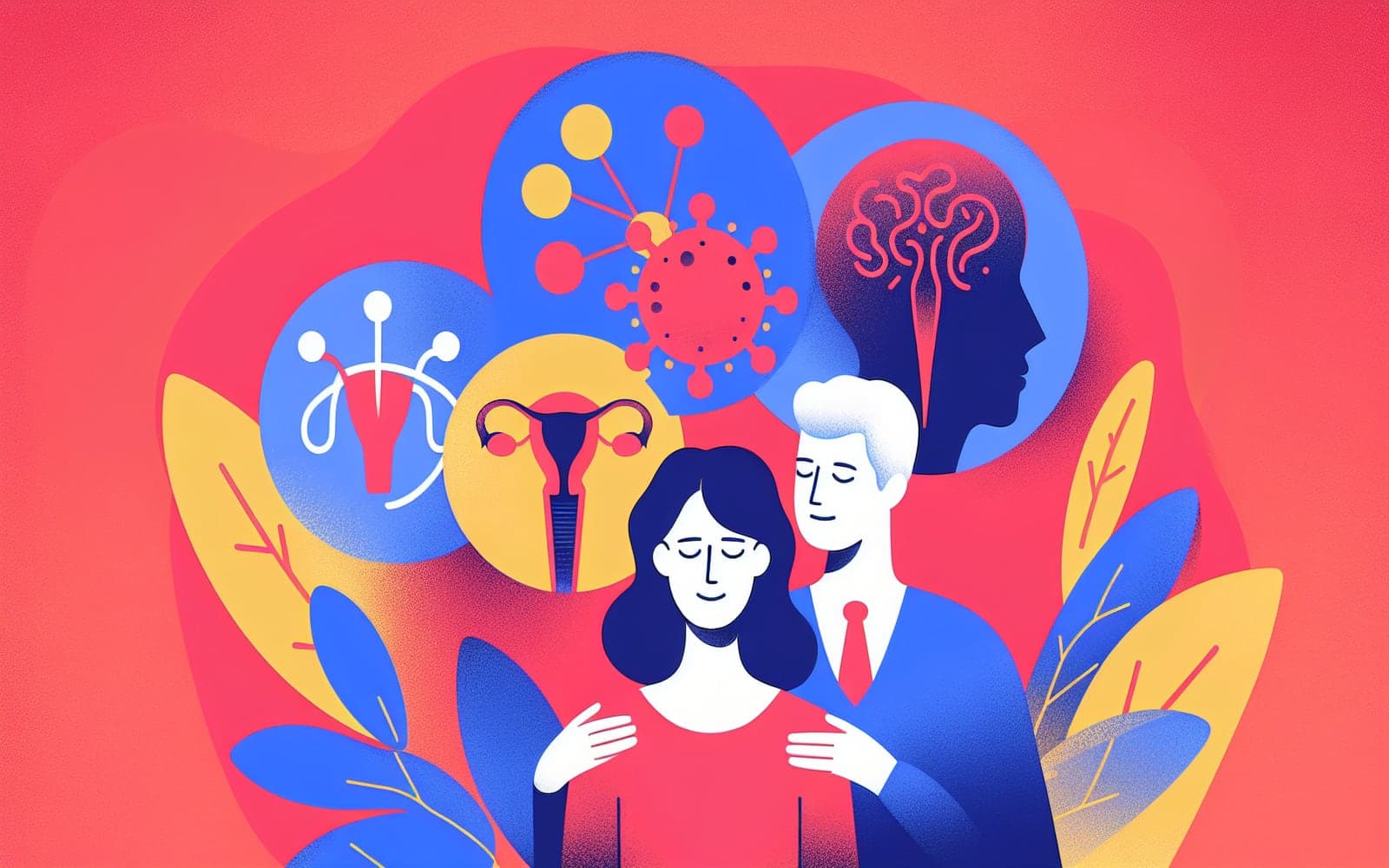What You Need to Know about Menopause: Symptoms and Diagnosis
What You Need to Know about Menopause: Symptoms and Diagnosis
The Big Picture
Menopause marks the end of a woman's reproductive years, but it comes with several physical and emotional changes. Let's explore the symptoms and diagnosis of menopause.
Contents
- Understanding Menopause
- Common Symptoms
- Diagnosis of Menopause
Understanding Menopause
Menopause is the permanent end of menstruation, confirmed after 12 months without a period. It usually occurs around age 51 and is caused by the depletion of ovarian follicles. This leads to lower estrogen levels and higher follicle-stimulating hormone (FSH) levels. The transition leading up to menopause, known as perimenopause, can start in the 40s and is marked by irregular periods and hormonal changes.
Common Symptoms
Hot flashes, sleep disturbances, and mood swings are frequent symptoms during menopause. Up to 80% of women experience hot flashes, which are sudden feelings of warmth that mainly affect the chest and face. Sleep issues and mood changes like depression can add to the discomfort. These symptoms can significantly impact daily life and work productivity.

Diagnosis of Menopause
The diagnosis of menopause is mainly clinical, based on a woman's symptoms and menstrual history. For women over 45, irregular periods and symptoms like hot flashes usually point to menopause. FSH testing is not always necessary, as it can vary widely during this time. For women under 40, other conditions must be ruled out before diagnosing menopause.
FAQs
What is menopause?
Menopause is the permanent end of menstrual cycles, confirmed after 12 months without a period.
What causes hot flashes?
Hot flashes are caused by hormonal changes, especially the drop in estrogen levels.
How is menopause diagnosed?
Menopause is diagnosed based on symptoms and menstrual history, not just FSH levels.
What age does menopause usually start?
Menopause typically starts around age 51.
Key Takeaways
Understanding menopause symptoms and diagnosis can help women manage this life stage more effectively.
Additional References
- Taffe JR, Dennerstein L. Menstrual patterns leading to the final menstrual period. Menopause 2002; 9:32.
- Bromberger JT, Schott LL, Kravitz HM, et al. Longitudinal change in reproductive hormones and depressive symptoms across the menopausal transition. Arch Gen Psychiatry 2010; 67:598.
This article has been reviewed for accuracy by one of the licensed medical doctors working for Doctronic.











